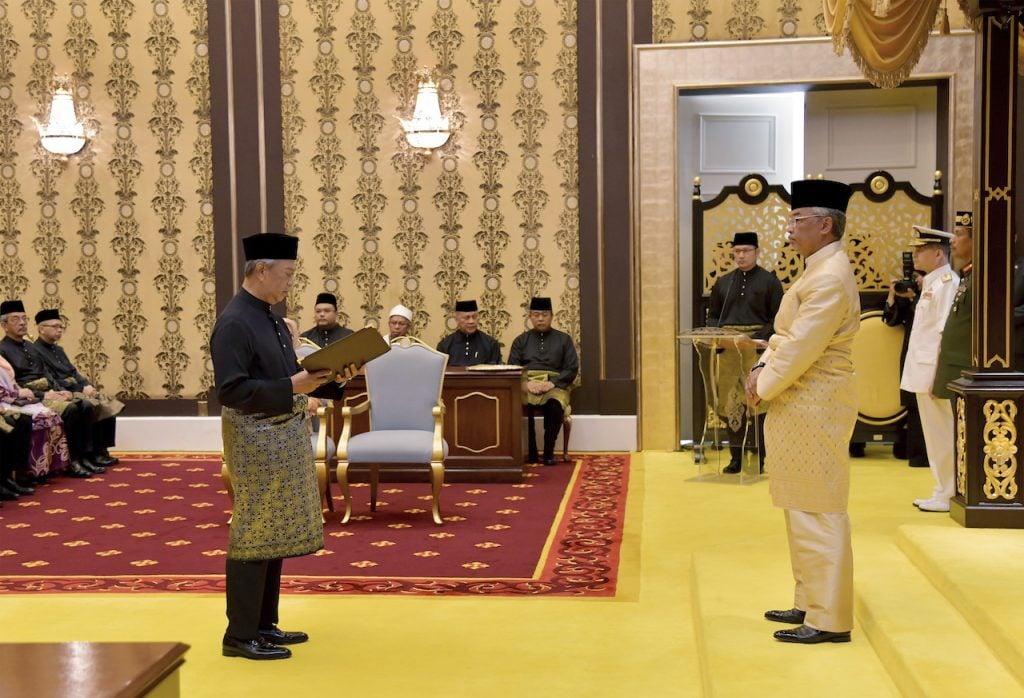‘Derhaka’ has no place in constitution or modern state, politicians told
A former top judge says there is no place for such a concept, while a prominent social critic says it's a vestige of a feudal past.
Just In
The concept of “derhaka”, or the disobedience of the king, is not at all present in Malaysia’s legal system, say two prominent personalities in response to repeated claims that Prime Minister Muhyiddin Yassin and other top officials have been disrespectful towards the Agong.
Accusations of having committed “derhaka”, historically an offence of treason for going against the rulers in feudal Malay society, have been repeatedly levelled against Muhyiddin by some opposition leaders who say the prime minister must heed the Yang di-Pertuan Agong’s wish for Parliament to reconvene without delay.
PKR leader Anwar Ibrahim and his Umno counterpart Ahmad Zahid Hamidi, who have been in unison in their attacks on the Perikatan Nasional government, said Muhyiddin should act based on the call of the palace, despite reminders by top legal minds that the Agong is constitutionally bound to act based only on the advice of the Cabinet.
Pakatan Harapan leaders also used the term “derhaka” on Attorney-General (AG) Idrus Harun after he penned an explanation showing the limits of the Agong’s powers in urging for Parliament to reconvene.
Former Federal Court judge Gopal Sri Ram, one of Malaysia’s most senior constitutional experts, said there was nothing in the Federal Constitution to accommodate “derhaka” or treason against the king.
What the current legal system recognises, said Sri Ram, is waging war against the king, as provided in Section 121 of the Penal Code.
He said such an offence is also addressed by the Sedition Act, which considers statements condemning the royal institution a crime.
But Sri Ram told MalaysiaNow that not heeding the king’s advice was not an offence.
“The PM or the AG who refuses to follow the advice of the king does not commit any offence.
“In fact, the constitutional law requires the king to act on the advice of the PM, not the other way around,” said the former judge who has served in both the Court of Appeal and Federal Court, delivering more than 800 judgments which became legal precedents in Malaysian and Commonwealth courts.
“There is no such thing as derhaka for not opening Parliament,” he added.
Feudalism
Giving a historical perspective, prominent thinker Chandra Muzaffar said the concept of “derhaka” was not only problematic, but also alien to a modern legal system such as Malaysia’s, where the powers and rights of a monarch are clearly demarcated in the constitution.
“The concept and practice of ‘derhaka’ was strongly influenced by Malay feudalism. A person was often accused of ‘menderhaka’ when he went against the wish or the order of a sultan regardless of whether that command was ethical or not,” Chandra, who not long ago led a campaign to promote the five-point Rukun Negara national philosophy, told MalaysiaNow.
He said in the past, individuals were ordered to commit wrongdoings on behalf of a ruler, failing which they would be accused of disobeying the palace.
Muhyiddin is not the first politician to be accused of “derhaka”. Similar accusations were also made against Dr Mahathir Mohamad, who crossed paths with Malay rulers several times throughout his two tenures as prime minister.
In 2017, Mahathir, who clipped the powers of the palace and removed their legal immunity to be tried for criminal offences, said he did not mind being accused of disobeying the Johor sultan after he was slammed by the ruler over his criticism of the controversial Forest City project in the state.
“If I have to be accused of lese majeste for what I say, so be it,” he had said in a letter published by The Star.
Chandra expressed disappointment with politicians who use “derhaka” to label their enemies.
“It is a pity that political leaders who should know better have been using the term ‘derhaka’ loosely and thereby creating a great deal of misunderstanding among the people.
“It was most diabolical of certain political leaders to try to manipulate ‘derhaka’ for their own selfish ends,” he added.
Ahmad Mustakim Zulkifli contributed to this report.
Subscribe to our newsletter
To be updated with all the latest news and analyses daily.
